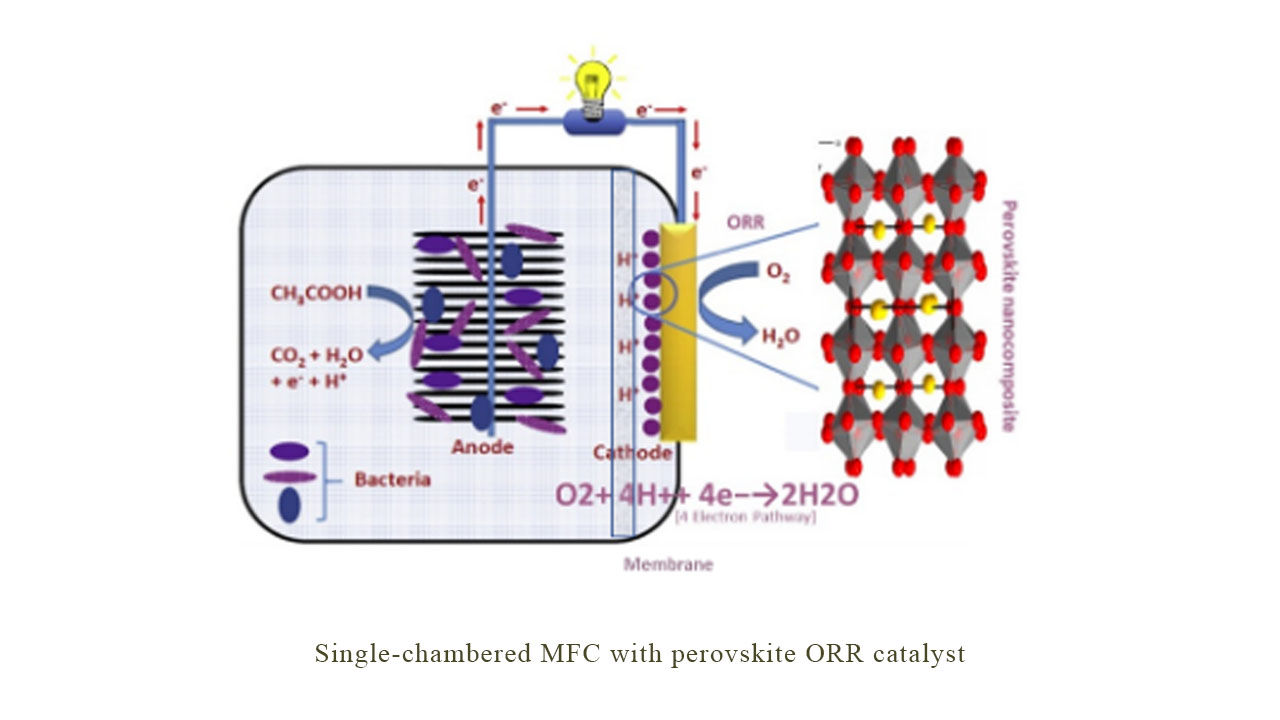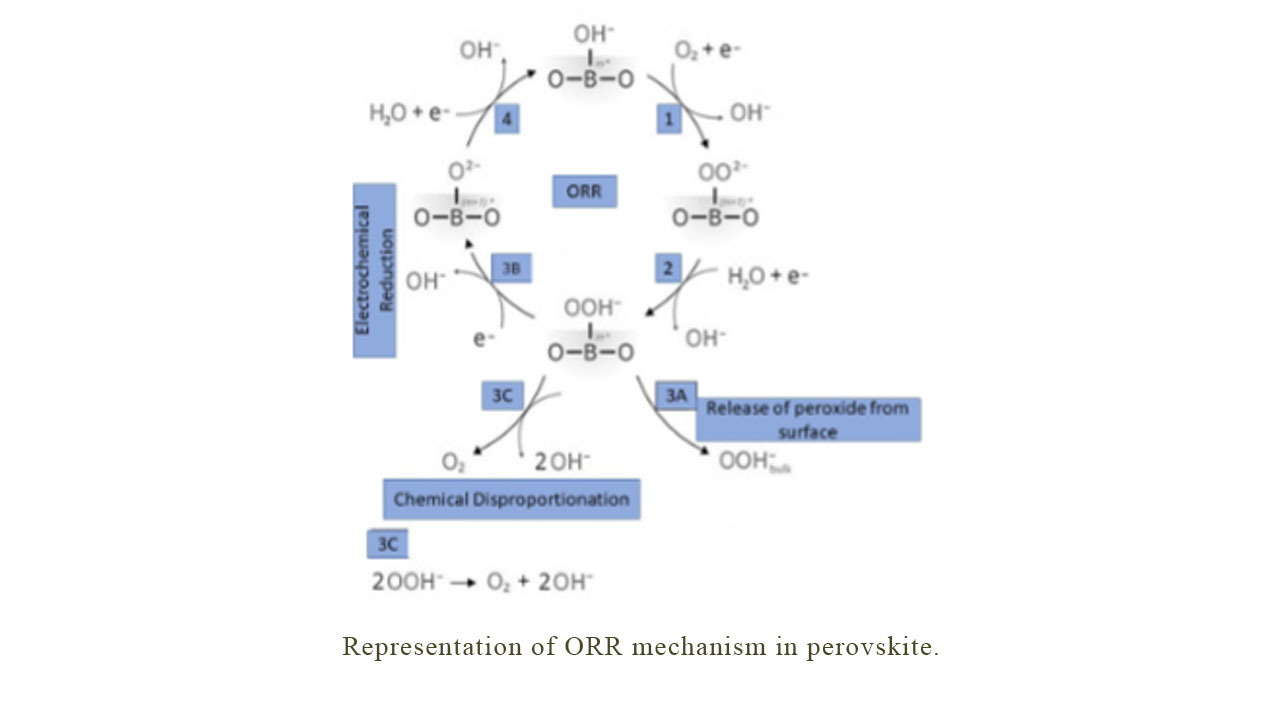Microbial fuel cells (MFCs) are biochemical systems producing green energy through the microbial degradation of organic contaminants in wastewater. The Oxygen Reduction Reaction (ORR) that takes place at MFC cathode decides the overall output of energy generation. Hence, the selection of ORR catalyst becomes pivotal in MFC fabrication for its efficiency and cost effectiveness. Gopa Nandikes P, PhD Scholar, Department of Environmental Science, proposes perovskite-based nanocatalyst as an excellent replacement to Platinum in his paper “Perovskite-Based Nanocomposite Electrocatalysts: An alternative to Platinum ORR Catalyst in Microbial Fuel Cell Cathodes”. The paper is published in ‘Energies Journal’ having an Impact Factor of 3.04.
The paper comprehensively summarises all the studies conducted with perovskite-based ORR catalyst in MFC, its unique reaction mechanism and the synergistic effect with carbon. The paper also throws light into various challenges and prospects to further improve the ORR activity of perovskite-based catalysts.
Abstract of the Research
Microbial fuel cells (MFCs) are biochemical systems having the benefit of producing green energy through the microbial degradation of organic contaminants in wastewater. The efficiency of MFCs largely depends on the cathode oxygen reduction reaction (ORR). A preferable ORR catalyst must have good oxygen reduction kinetics, high conductivity, and durability, together with cost-effectiveness. Platinum-based electrodes are considered a state-of-the-art ORR catalyst. However, the scarcity and higher cost of Pt are the main challenges for the commercialization of MFCs; therefore, in search of an alternative, cost- effective catalysts, those such as doped carbons and transition-metal based electrocatalysts have been researched for more than a decade. Recently, perovskite-oxide based nanocomposites have emerged as a potential ORR catalyst due to their versatile elemental composition, molecular mechanism, and the scope of nanoengineering for further developments. In this article, we discuss various studies conducted and opportunities associated with perovskite-based catalysts for ORR in MFCs. Special focus is given to a basic understanding of the ORR reaction mechanism through oxygen vacancy, modification of its microstructure by introducing alkaline earth metals, electron transfer pathways and the synergistic effect of perovskite and carbon. At the end, we also propose various challenges and prospects to further improve the ORR activity of perovskite-based catalysts.



